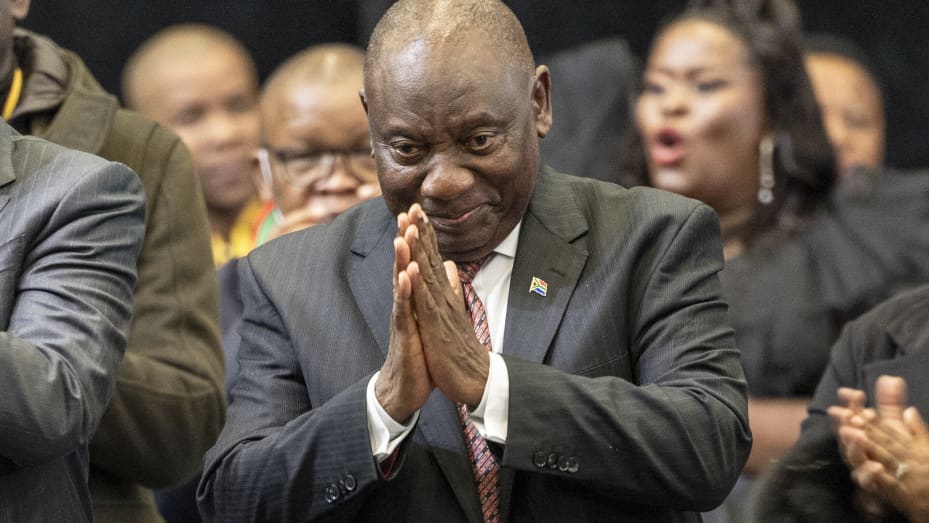
Cyril Ramaphosa has been re-elected as President of South Africa in a groundbreaking political development following a historic coalition agreement.
This is after an agreement between the ruling African National Congress (ANC) and the opposition Democratic Alliance (DA) and other several smaller parties, signaling a new era of political collaboration aimed at addressing the nation’s pressing challenges.
In a victory speech delivered to a packed National Assembly late Friday evening, Mr. Ramaphosa celebrated the coalition’s formation and emphasized the need for unity and cooperative governance.
“Voters expect us to act and to work together for the good of everyone in our country,” he said, acknowledging the critical need for effective leadership and joint efforts to uplift the nation.
The formation of this coalition marks a significant departure from the ANC’s long-standing dominance in South African politics. For the first time since the end of apartheid and the country’s first democratic elections in 1994, the ANC failed to secure an outright majority, receiving only 40% of the vote in last month’s elections. The DA, historically the main opposition, garnered 22% of the vote, leading to a coalition that promises to reshape the country’s political landscape.
The coalition agreement was the result of intense negotiations and high political drama. The National Assembly session stretched late into the evening as members voted on key positions in the new administration. The ANC’s secretary-general, Fikile Mbalula, hailed the coalition as a “remarkable step,” allowing Mr. Ramaphosa to retain his presidency despite the ANC’s diminished parliamentary presence.
This coalition represents an unprecedented alignment between the ANC and the DA, long-time political adversaries. The ANC, under the leadership of Nelson Mandela, was instrumental in the fight against apartheid and has been the ruling party since 1994. The DA, on the other hand, has faced criticism for allegedly seeking to maintain economic privileges for South Africa’s white minority, a claim the party denies.
Mr. Ramaphosa, reflecting on the coalition and the country’s history, recalled the ANC’s first democratic victory in 1994. “We have been here before, we were here in 1994, when we sought to unite our country and to effect reconciliation – and we are here now,” he stated, drawing parallels between the new coalition and the efforts to unify the nation post-apartheid.
John Steenhuisen, leader of the DA, echoed the sentiment of a new beginning, describing the day as “historic” and the coalition as a “new chapter” for South Africa. The coalition agreement saw the appointment of an ANC speaker for the National Assembly, while the DA secured the deputy speaker position.
The coalition has received mixed reactions from various political factions. Julius Malema, leader of the Economic Freedom Fighters (EFF), voiced his discontent, describing the coalition as a “marriage of convenience” designed to consolidate white monopoly power over South Africa’s economy. Malema, who left the ANC to form the EFF in 2013, remains a critical voice in the country’s political landscape, advocating for more radical economic reforms.

